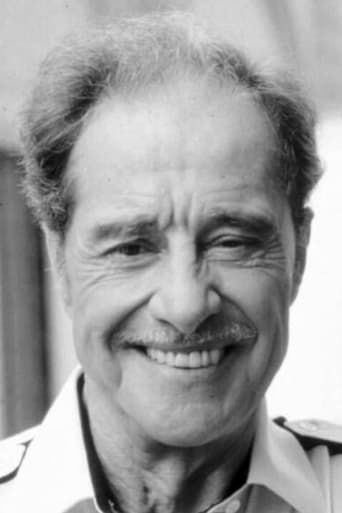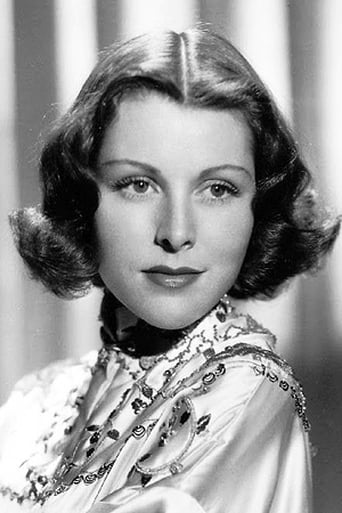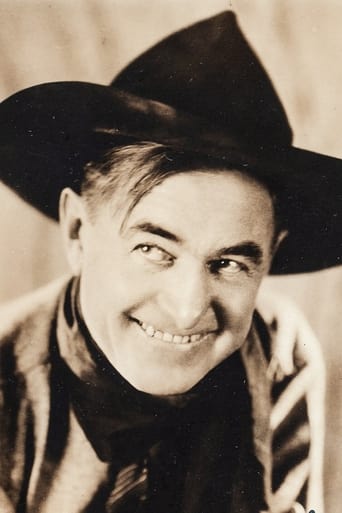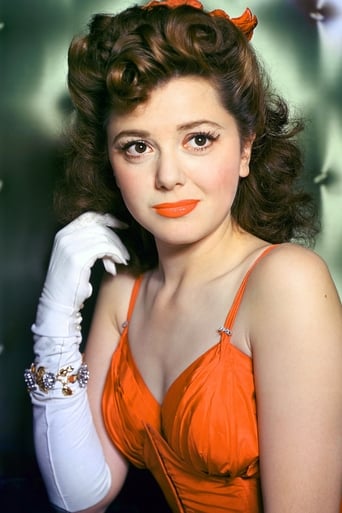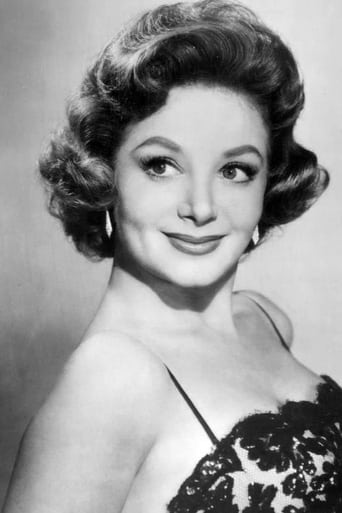ThiefHott
Too much of everything
SoftInloveRox
Horrible, fascist and poorly acted
Rio Hayward
All of these films share one commonality, that being a kind of emotional center that humanizes a cast of monsters.
Jemima
It's a movie as timely as it is provocative and amazingly, for much of its running time, it is weirdly funny.
vincentlynch-moonoi
I agree with Rooster Davis (one of our contributors) -- this film was a good idea that missed the target.It begins with a great premise -- a young man who has been fighting in World War II is KIA, and his father (Don Ameche) receives the dreaded telegram and becomes very depressed and doesn't seem to be able to even begin to put it behind him. The ghost of Ameche's grandfather arrives to take Ameche for a walk where they review the son's short life. For a while you have the hope that maybe the telegram was a mistake, and the young man will actually come back alive; but that ending would have been unfaithful to what so many families were experiencing in 1943. So, all good premises.So what's the problem? The main problem for me was the length of the B film -- 75 minutes. And that shortness doesn't give us the opportunity to get to know the son very well. As an older teen and then young man we get to know him a bit, but as a boy we see only a couple of brief episodes. A nice kid. But why was he so special to his dad. That just never across. Perhaps another 15 or 20 minutes to expand on that would have made the difference.That's not to say there aren't some good things here. Don Ameche is never a disappointment, and is great here as the father. It's nice to see Harry Carey (as Gramp) in a more substantial supporting role; he's one of the great character actors. It's also nice seeing MGM's Ann Rutherford as a potential girl friend.Look, this isn't a bad film. It just coulda been more. I'll let it hold on to a "7", but that's stretching it.
normstobert
I reviewed this back in 2001 and since then I have found it on DVD. I did a Google search for the title and I eventually came up with a place that sells self-copied movies that have fallen into the public domain. These folks had a ton of movies I never even heard of! I purchased a copy and it came in a case with a "home-made" cover insert as well. The quality of the copy was good. Sorry but it has been several years since I purchased it so I cannot give you a link - but Google it and you will most likely find it. Will also throw in a comment on another post- I loved the old AMC - uncut, no commercials, no colorized movies. What happened along the way? It was great having all those movies with no interruptions. I suppose they figured out that you can make a lot more $$$ by doing it the way they do now. It's a shame cause they played movies you absolutely cannot find.
RJC-4
Finding this oddity on cable recently, I was quickly seduced by its opening sequence, a Welles-like plunge down main street into a small everytown's heart, Marsh's pharmacy. Here, as some clever camera work reveals, solid citizen Lew Marsh (Don Ameche) tends to the blisses of early 40's Hollywood America; everyone's prescription is filled, sundaes topped off with a cherry, local oddballs humored, etc.What most recommends the film is its frame narrative. Quickly the idyll is broken when Marsh learns his son has been killed in the war. He sinks into a lengthy depression. Enter the ghost of Gramp to conduct psychotherapy: he spirits Marsh back into the past where we relive the childhood, adolescence, and early adulthood of the now-dead Rusty. While the mid-section unfolds linearly, Marsh and Gramp function offscreen as a Greek chorus (their melancholy dialogue often a grim counterpoint to the generally cheerful scenes). Then it's back to the present where an exorcized Marsh learns to stop questioning the wisdom of sacrificing young men in war. "Rusty died a good death," Gramp's ghost counsels, and we know it's only a matter of time before Marsh will agree.Three years before "It's A Wonderful Life" (1946), "Happy Land" was already hijacking the "Christmas Carol" device of reliving the past on a therapeutic sightseeing tour. Unlike the Stewart film, though, the tone is more darkly somber, lingeringly mournful. The theme of sorrow outweighs the theme of recovery. Ameche looks and sounds wracked, bitter.In fact, the film's heart is scarcely in its chief enterprise, which is to steel its audience for more wartime sacrifice. It seems at times almost to be working against its own message that war deaths are "good deaths." I imagine it may have helped salve some broken hearts, but the crime of this type of film is that, if it succeeds, it only helps to break more.
westfalj
Overall, this film falls within the much larger group of films from this period during screenings of which I like to call, "Buy war bonds!" Not as propagandistic as, say, THOUSANDS CHEER, HAPPY LAND can boast of a relatively amazing performance by a young Harry Morgan, as well as a generally high quality of acting on the part of the star, Don Ameche. Harry Carey, as Gramp, is a bit over the top, however. When HAPPY LAND doesn't remind you of an advertisement for the U.S. War Dept., it will remind you of IT'S A WONDERFUL LIFE. Unless you're a die-hard Harry Morgan fan, save yourself the trouble and see Jimmy Stewart relive HIS life in a small town. It's a bit more interesting.
